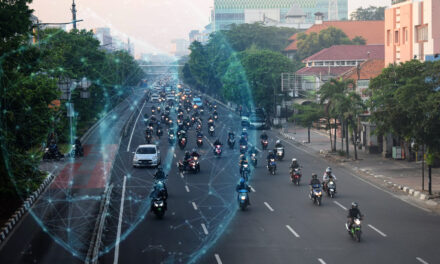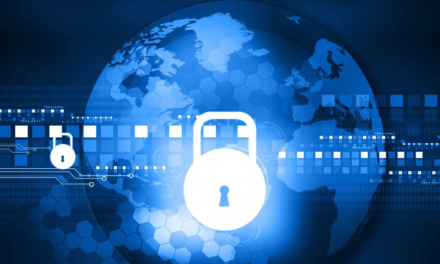MDR services and skills upgrading critical to a cybersecure future for Singapore and ASEAN.
During Singapore’s parliamentary Budget address, Deputy Prime Minister and Finance Minister Heng Swee Keat reiterated the need for deepening digital connectivity and cybersecurity partnerships with ASEAN member states.
He also announced the COVID-19 Resilience Package worth S$11 billion, part of which will be channeled towards upskilling our local workforce to cement our country’s position as a “Global-Asia node”.

Nilesh Jain, Vice President, Southeast Asia and India, Trend Micro shares his views on the cyber-threat landscape and how Singapore can prepare for a cybersecure future.
“The pandemic has dominated all of our lives since 2020, but it’s not slowing down the cybercriminals,” said Nilesh. “We blocked 27.8 billion cyber threats in the first half of 2020 on a global level, 93% of which were email-borne.”
The risk that businesses face was compounded by security gaps created by a completely remote workforce. “Understaffed and overextended cybersecurity teams can also become vulnerable to financial loss, operational disruption, and reputational damage if the problems on security alerts volume and prioritization are not addressed.”
MDR
Nilesh believes that making managed detection and response (MDR) services available to support businesses both large and small with analysts is a key solution. “MDR tackles the issue of more advanced threats that an in-house IT team cannot completely address and spans alert monitoring, alert prioritization, investigation, and threat hunting.”
Commenting on DPM Heng’s Budget address, he said: “Deepening digital connectivity and cybersecurity partnerships with our ASEAN member states is a step in the right direction to prepare Singapore companies for the next generation of cyber-threats.”
He also emphasized that continued threat protection will require training, technology, and knowledge of the most effective defenses against an increasingly complex threat environment.
“We must continue to harness knowledge and break new ground on the innovation front,” he said. “Remember, security on its own has no value: it’s a verb that is applied to a technology. As technology changes, so must security. ”
Skills upgrading
That’s why skills upgrading is critical. For instance, Trend Micro is working with Republic Polytechnic to provide expertise, training, academic sponsorship, and internship opportunities for students from the Diploma in Infocomm Security Management.
“The cybersecurity jobs market has been a bright spot in recent years,” said Nilesh. “Over 12,000 information and communications technology (ICT) jobs were made available in November last year under the SGUnited Jobs and Skills Package to stimulate our nation’s digital economy.”
A field once limited to defense contractors, government agencies and other highly technical disciplines, cybersecurity has transitioned into one that underpins every industry in Singapore, from healthcare to retail.
In light of this evolution, Nilesh is glad that cultivating a knowledge-based economy has always been a priority in Singapore’s policy planning. “The COVID-19 Resilience Package worth S$11 billion announced at The Budget today will be a key enabler of our nation’s digital-readiness. This investment will upskill workers and businesses across all sectors, deepening our country’s position as a ‘Global-Asia node’.”
He added: “At the very front of the pipe, education is how we produce the people needed in cybersecurity. Educational institutions and initiatives will play a central role in how tomorrow’s cybersecurity industry emerges. Complementing the curriculum with an industry-based, hands-on approach is crucial in educating students of the ever-evolving cyber landscape and nurturing them into the skilled professionals we need.”

















